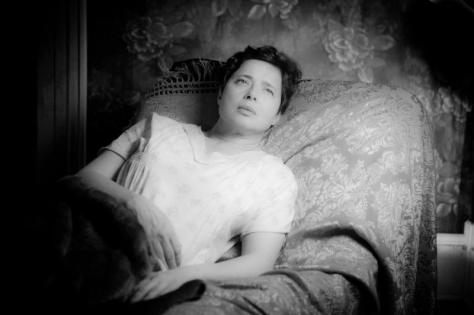
Format: DVD + Blu-ray
Release date: 24 February 2014
Distributor: Studiocanal
Directors: Alberto Cavalcanti, Charles Crichton, Basil Dearden, Robert Hamer
Writers: John Baines, Angus MacPhail, T.E.B. Clarke
Based on stories by: H.G. Wells, E.F. Benson, John Baines, Angus MacPhail
Cast: Mervyn Johns, Michael Redgrave, Roland Culver
UK 1945
103 mins
The history of horror has often been written up by people who don’t have a sense of humour. In some ways the commentary on this special edition DVD and Blu-ray release of Dead of Night (1945) strives to remedy this fact, but also falls into the same earnest, po-faced reverence. The inclusion of John Landis’s talking head notwithstanding, a familiar coterie of limey Brit pundits do tend to harp on about the film as though it’s the second coming, even though it has been canonised as a cult home-grown classic for well over a decade now, and even makes it to number 11 on Scorsese’s top 10 list of horror favourites.
Long before Ealing created their 1950s comedie humaine, studio top cheese Michael Balcon had intended to diversify the studio’s genre output. Though there are laughs here, some intentional, others not, what’s really horrific and terrifying is the British stiff upper lip, a patriotic condition suspicious of the occult and in denial of subtext and ambiguity – the mind is merely a puzzle that can be satisfactorily decoded. Mervyn Johns plays the slaphead everyman, an architect invited down to an isolated cottage, a pilgrim’s farmhouse in Kent, for the weekend with assembled guests to swap stories about their brushes with death. There’s even a Viennese psychologist at hand, to accommodate the then new and voguish fad for The Interpretation of Dreams, a little bit Freud, a little bit Jung… ‘Mother what did you do with that bottle of schnapps we got for Dr Van Stratten?’ This bridging device umbrellas a quintet of ghost stories – a child death, a haunted mirror, a grim reaper bus conductor – which, while now familiar and even clichéd, originated here.
Ealing Studios had apparently rejected the hierarchical structure of the cottage British Film Industry – over several pints in the Red Lion pub, leftist ideologies favoured a more communal and socialist environment, though the notion of the Auteur was far too suspect and continental. Ironically, Cavalcanti’s name looms largest, as the helmer of two of the five episodes – the English eccentricities have always been more acutely observed by European refugees. The most imitated story is the final one, with Michael Redgrave as a ventriloquist possessed by his demonic dummy, prone to misanthropic Tourrete-style public outbursts, slowly taking control of his master’s voice, a device that recurs in everything from The Twilight Zone to Bride of Chucky.
Stanley Pavey’s lighting is noir-ish, and visual consistency is provided by cameraman Douglas Slocombe. Overall, it’s a cyclical narrative that ends where it begins, and the dreams-within-a-dream portmanteau suggests that it’s all the imagination of our hapless protagonist, an architect of his own mind. The scariest element of the film might be that there’s no mention of the war, though the claustrophobia of the English countryside is fully realised. In his intro to the golfing story, the comedic stop gap, Roland Culver observes ‘…Jolly unpleasant when you come slap up against the supernatural’. For the bulk of the stories, the emotional levelness of the national character unsettles the most – ‘Do you take milk and sugar’ rarely sounded so unnerving, as if a quick snifter or ‘one for the road’ can keep the silly, wretched ghosts in their place.
Robert Chilcott

